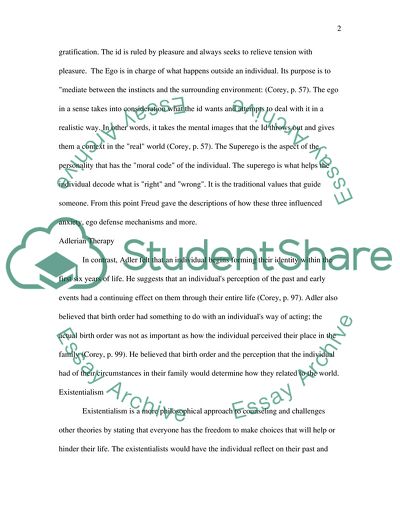Cite this document
(A Review of Theory and Practice of Counseling and Psychotherapy Coursework Example | Topics and Well Written Essays - 1250 words, n.d.)
A Review of Theory and Practice of Counseling and Psychotherapy Coursework Example | Topics and Well Written Essays - 1250 words. https://studentshare.org/psychology/1725698-a-review-of-theory-and-practice-of-counseling-and-psychotherapy
A Review of Theory and Practice of Counseling and Psychotherapy Coursework Example | Topics and Well Written Essays - 1250 words. https://studentshare.org/psychology/1725698-a-review-of-theory-and-practice-of-counseling-and-psychotherapy
(A Review of Theory and Practice of Counseling and Psychotherapy Coursework Example | Topics and Well Written Essays - 1250 Words)
A Review of Theory and Practice of Counseling and Psychotherapy Coursework Example | Topics and Well Written Essays - 1250 Words. https://studentshare.org/psychology/1725698-a-review-of-theory-and-practice-of-counseling-and-psychotherapy.
A Review of Theory and Practice of Counseling and Psychotherapy Coursework Example | Topics and Well Written Essays - 1250 Words. https://studentshare.org/psychology/1725698-a-review-of-theory-and-practice-of-counseling-and-psychotherapy.
“A Review of Theory and Practice of Counseling and Psychotherapy Coursework Example | Topics and Well Written Essays - 1250 Words”. https://studentshare.org/psychology/1725698-a-review-of-theory-and-practice-of-counseling-and-psychotherapy.


